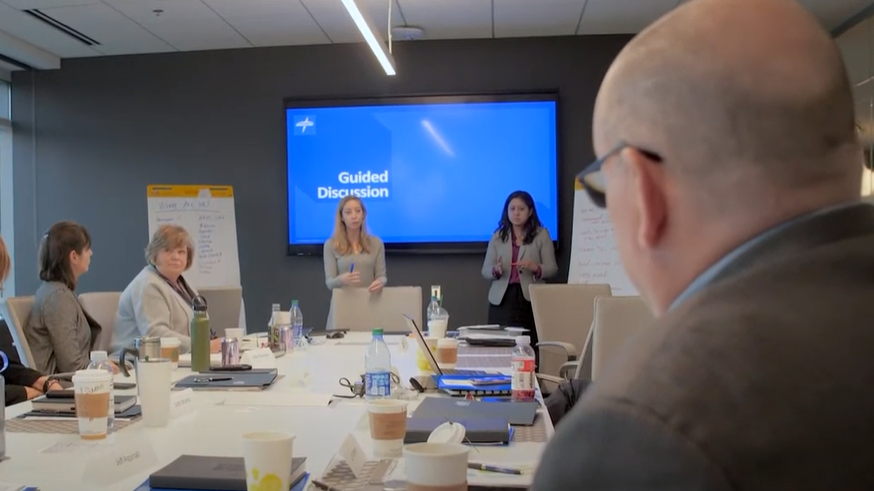Medline hosts Global Health Supply Chain Roundtable to better manage medical device donation process

Leaders discuss challenges and opportunities with existing processes, and ways to collaborate for long term impact
By Medline Newsroom Staff | July 8, 2020
COVID-19 has revealed just how vulnerable health facilities are when they do not have the supplies they need to properly care for patients. While facilities around the world are grappling with the impact of supply chain shortages in this pandemic, these are familiar challenges for facilities in low-resource countries.
Each year, developing nations receive tons of free medical supplies donated by health systems across the United States. Some credit donations for up to 80 percent of their supplies. The problem is – not all of it is useful. According to one estimate, around 40 percent of donated medical equipment found in low-income nations are not usable.
In fact, medical supply donations can create more problems than they solve, especially when good supply chain processes are lacking. When donations fail to match what’s needed locally, or can’t be sustainably maintained, they can wreak havoc on the local facilities.
Various organizations are working on their own to overcome challenges in the process, but these challenges are much larger than any one organization or institution. It’s a global problem, and will likely require cross-sector efforts to solve.
To move organizations to think more collaboratively, Medline hosted a supply chain roundtable with institutions involved in medical device donations or short-term mission trips.
The roundtable took place late December 2019 at Medline’s headquarters in Northfield, Illinois. In attendance were about a dozen experts from varying groups, including medical surplus recovery organizations (MSROs), faith-based health organizations like Hospital Sisters Mission Outreach (HSMO) and Catholic Health Association, as well as Medline, supply chain partner to health systems around the world. Through its Global Health Initiative, Medline bring its expertise and resources in supply chain management to healthcare facilities in low resource countries.
“The work that we’ve started with this roundtable is really an extension of the supply chain work Medline has been doing in global health, and the next steps we’re taking to address these issues on a much broader scale,” said Francesca Olivier, senior director of social responsibility at Medline. “It’s a reflection of our own prioritization of responsible donation practices.”
At the event, organizations got a chance to learn from each other about successes and challenges they’ve experienced when facilitating donations or organizing short-term mission trips. Participants also examined possible solutions to the challenges they’ve encountered and identified ways of working together to address them.
“One of the things we want to make sure that we’re doing together as a collaborative is thinking about how we take the resources of different groups, such as Medline and HSMO, who do very different things, and partner them together so that we can then have a lot more impact on countries needing aid. Not each of us doing something separately, but working together as a team,” Geoff Nielson, area operations director of The Resource Group.
The importance of developing relationships with each other and other partners was a common theme. Other needs attendees identified included:
- giving volunteers and donors more education on how to ethically donate
- creating best practice standards for managing donations on the ground
- building and using operational models that empower the local facility in the long term, and include an exit plan
- improving supply chain processes in ways that benefit the country receiving them and match the capacity they have
The roundtable kicked off an ongoing dialogue to approach this supply chain dilemma differently. Next, attendees plans to work on a on a series of micro projects to serve a macro mission of addressing challenges within each supply chain component.
Organizations that attended the roundtable include:
- Hospital Sisters Mission Outreach
- MedSurplus Alliance/The Task Force for Global Health
- The Resource Group/Ascension
- Catholic Health Association
- Partners in Health
- Open Boxes
Learn more about Medline’s efforts to empower health facilities around the globe.
Medline Newsroom Staff
Medline Newsroom Staff
Medline's newsroom staff researches and reports on the latest news and trends in healthcare.
